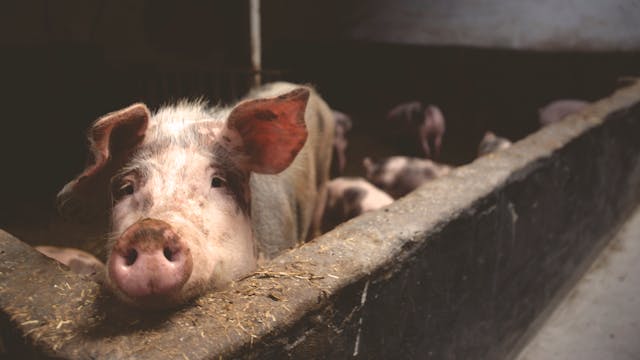
Why do some things smell good and some things smell bad? The reason things smell good or bad is a combination of learned experiences and evolution.
We smell in the same way that we taste. Everything around us is made of molecules and some of these molecules are released. If they happen to be released in the vicinity of us and find their way into our noses, they can attach to smell receptors that we have there. We have approximately 400 to 1,000 of these scent receptors and they can each react to a multitude of different molecules. When they are triggered by a molecule, it creates an electric signal that travels to the olfactory center of the brain and the brain works out what signals came from what scent receptors and puts together a scent profile from that. It is the same way our taste or sight work. With taste, we have taste buds that have receptors that get triggered by different molecules in the food. These signals go to the brain and the brain analyzes how much of which taste came and puts together a total taste. It is the same with sight. We have cones in our eyes that detect red, green, or blue light. They send signals to the brain and the brain works out how much of each color it has seen to make an overall color and an overall picture. Some things we taste are good and some things we taste are bad. Some things we smell are good and some things are bad. Why is that?
There are two main reasons. The first is a learned response and this is why people in different cultures find different scents appealing. If you have never eaten a durian fruit and were exposed to one, you would not be able to eat it because of the smell. However, if you have grown up eating them and know that they taste amazing, you would associate the same smell with something that tastes good and the smell would be pleasant to you. This is down to memory and learned association. We learn from an early age to connect the smells of things to the experience that comes with them. For example, most people think a cookie smells better than a salad because we have learned that a cookie has an instant hit of sugar and fats that our body wants. Scent and memory have a very strong connection which you can see when you suddenly get a nose of a smell that reminds you of something that happened in your childhood. If you had a bad experience every time you ate a cookie, perhaps if you were strongly allergic to chocolate, you would probably grow up to dislike the smell of cookies. There are also, interestingly, some scents that we cannot detect. Oxygen is one of them. We have the ability to detect trillions of different smells, but we cannot smell oxygen.
The second reason is evolutionary. We have fairly strong stomachs and fairly strong stomach acid, but there are still bacteria and certain toxins that can make us very sick, or are potentially fatal. A lot of these bacteria release sulfur and oxygen (sulphate), which we have evolved to think smells particularly bad. These bacteria release this compound when they are decomposing things, such as old food, meat, bodies, and anything that is rotting. These bacteria are also present in excrement, making it smell bad. We have evolved to dislike these smells because if there is a smell we don’t like, we will avoid the source of the smell. That will stop us from eating rotten food, staying near dead bodies, or staying near excrement. Avoid those things will keep us safe from the bacteria and their lethal toxins. There was probably a point where we didn’t think those things smelled bad, but a mutation meant that one organism started to dislike the smells and stayed away. That organism had less chance of getting sick and more chance of passing on its genes, so disliking the smell spread. Interestingly, the majority of animals avoid smells that come from rotting meat and dead bodies. However, there are some animals, such as hyenas and vultures, that live on decayed meat and have stomach acid that is strong enough to destroy even the hardiest of toxins. They haven’t evolved to dislike the smell of rotting meat because if they did, they wouldn’t be able to eat anything. On the contrary, they have evolved to seek out the smell. And this is what I learned today.
Photo by Matthias Zomer: https://www.pexels.com/photo/pink-pig-66627/
Sources
https://umbc.edu/stories/what-makes-something-smell-good-or-bad
https://www.rockefeller.edu/news/30838-study-reveals-smell-receptors-work
https://en.wikipedia.org/wiki/Olfactory_receptor
https://www.nature.com/articles/nature.2014.14904
https://www.quora.com/Does-human-smell-only-involve-about-400-unique-receptors

Pingback: How do snakes use their tongues?